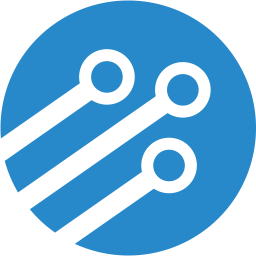
Accessibility Observatory
@UMNAccOb
Followers
427
Following
10
Media
12
Statuses
451
The Accessibility Observatory at the University of Minnesota. Measuring access to destinations for transportation analysis, performance mgmt, and planning.
University of Minnesota
Joined January 2014
Transit agencies: Want to attract more riders? Offer better access to jobs. In Portland, OR: "Daily boardings could increase by 1.8%- 2.1% for every 10% increase in accessibility {# of jobs reachable in 30 min from the bus stop by public transport]."
https://t.co/it8nA3KDiC
2
12
43
Accessibility is a better, broader measure of how well the transportation system meets people’s needs. It's not how fast you go, but what you can reach — for work, shopping, school or other activities.
https://t.co/BG42o1oqP4
@UMNAccOb @UMNews @UMNresearch #destinationaccess
0
3
1
Five new transitways planned for the Twin Cities will improve access to grocery stores, health care facilities, & high schools for tens of thousands of people from diverse demographics, according to @UMNAccOb research:
https://t.co/Kl0lgzjs9D
@UMNresearch @MetroTransitMN
0
4
5
Next week we’ll begin reviewing applicants for our two(!) open Researcher positions. If you want to work on implementing and advancing national-scale measurement of multimodal destination access (and, seriously, who doesn’t?) then apply here!
https://t.co/DOfRP9SKH8
0
2
0
JOB ALERT! We have openings for two full-time researchers to support our National Accessibility Evaluation and other projects. Big networks, big maps, big data.
Details & application links:
0
2
0
CTS is looking for two full-time researchers to join our Accessibility Observatory team! Positions will assist with @UMNAccOb research, outreach, & management. Resume review begins Sept. 20:
https://t.co/mNDjDL2Yts
@UMNresearch
0
6
2
Trying out a new slogan — “Providing a Sense of the Dismal Results Since 2015!”
0
0
1
“[Access] may be the single most important thing we should be measuring about our transport systems — but that we usually don’t.”
https://t.co/YtT29YYeko
humantransit.org
What if we planned public transit with the goal of freedom? Well, it’s hard to improve things that you can’t measure, but now it’s becoming possible to measure freedom, or as we call it in transport...
0
0
0
Measuring access to destinations helps make wise, cost-effective transportation system investments that best serve public needs as they evolve in an increasingly uncertain future, says @UMNAccOb director Andrew Owen. @UMNews @UMNresearch #destinationaccess
https://t.co/7vAnVlR5Jj
0
3
7
This spring we’re launching Phase II of our National Accessibility Evaluation project, which will expand our access data beyond jobs to include new destination types like education and healthcare
https://t.co/RdF8sigrrM
twin-cities.umn.edu
Study adds education and health care destinations to annual measure of access to jobs by auto, transit, biking and walking
0
0
0
Register to attend our free March 2 webinar to hear from @UMNAccOb researchers about their work evaluating accessibility to jobs by automobile, transit, and bicycle across the US:
https://t.co/8oHpRiyu0e
1
3
6
Somehow I missed this @StreetsMN article on the E Line aBRT (coming to @EdinaMN in the next 3-ish years). It will provide access to a *lot* of jobs.
All the while, *reducing the need* for cars & car infrastructure (car lanes, turn lanes, parking, etc.)
https://t.co/dQvXEEz0UN
streets.mn
Transit enthusiasts got some much needed good news last October as the B and D Lines received funding from the State to begin construction. These lines are the most recent additions to Metro Transi...
0
2
3
@BillLindeke People are sleeping on how much the D and B Lines will change accessibility!
Two maps from @UMNAccOb showing change in access to jobs for workers as a result of MSP transit projects.
https://t.co/LZWdZQdOxI
SWLRT and the D Line stand out, but for different reasons. The former for bringing transit to new areas, the latter for big service improvements.
2
3
8
Though it's uncertain when pandemic will end and riders return to transit, building network of fast, reliable, and efficient transportation is one of the most worthwhile investments we can make now, says @UMNAccOb director Andrew Owen. @UMNews @UMNresearch
startribune.com
The agency is surveying riders to determine where to put the proposed F, G and H lines.
0
3
6
New research from @UMNAccOb ranks and compares year to year the 50 largest US metros for connecting bike commuters with jobs. This data helps guide investments in biking routes to improve access to jobs in your city.
https://t.co/sgqgMJSTvR
@UMNews @UMNresearch #biking #cycling
0
2
0
This is a major advancement in the application of accessibility measures in transport. It is the go to document for any student or professional. Amazing leadership by @trnsprtst and @dk2475 to put this together with contributions from many around the world.
0
5
25
OpenStreetMap is “critical infrastructure” for us, too.
0
0
3
Access to jobs by transit increased in half of largest U.S. metros in 2019, says @UMNAccOb. Phoenix +8.1% and LA +6.0% due to transit investments and land use. Raleigh +6.8% from job growth and changes in job locations.
https://t.co/vQydEH6PYN
@UMNews @UMNresearch #transit
0
5
4
Different cutoffs are important because they represent different travel needs:
https://t.co/3nen44RJfV
But when using hard cutoffs without smoothing/decay, the selected time threshold has a large influence on the estimated impact of projects and policies.
https://t.co/CVwqKwxfk9
3/n The size of the accessibility impacts of the TransBrasil BRT project as well as its distribution across space and across income groups vary substantially depending on the time threshold chosen for the cumulative opportunity accessibility analysis #MTUP
1
1
1









